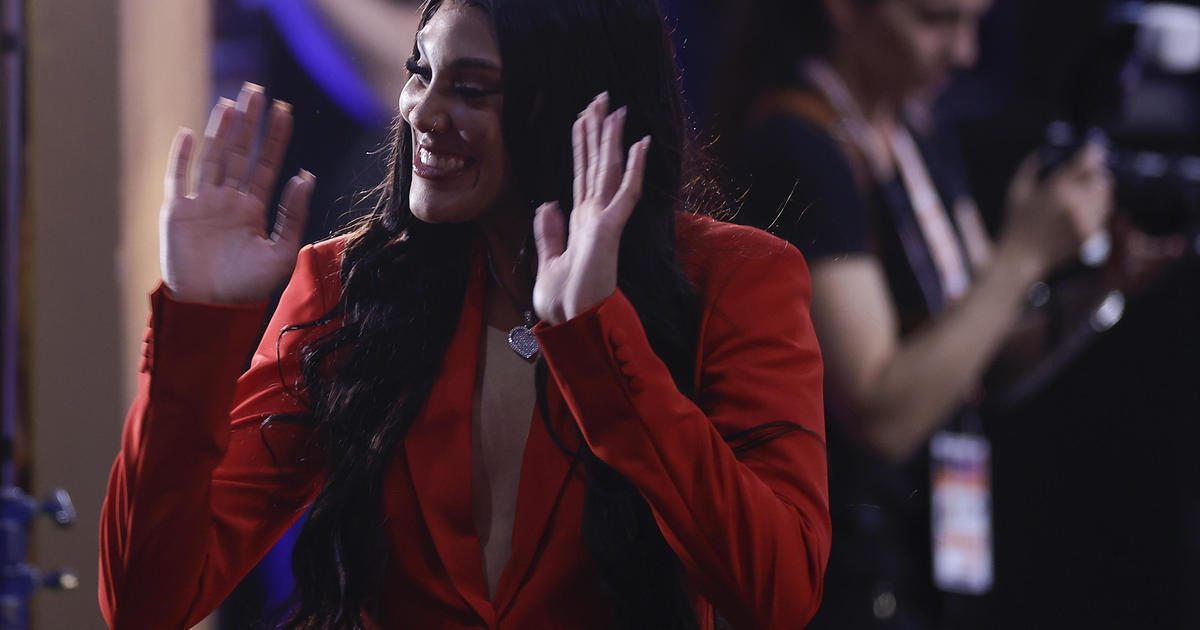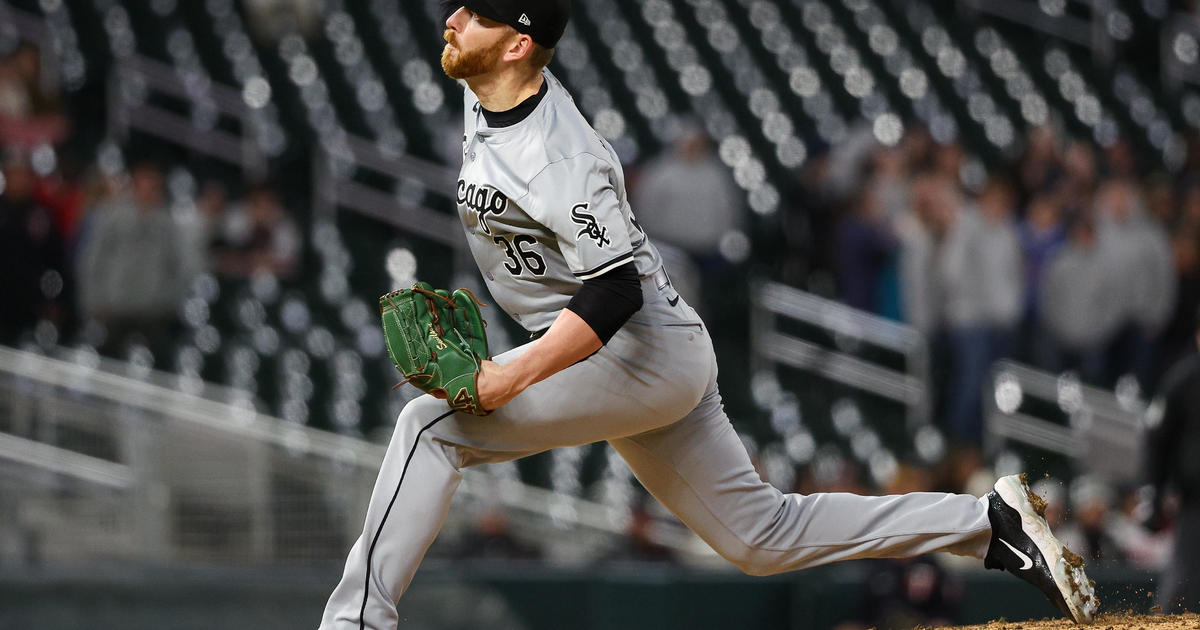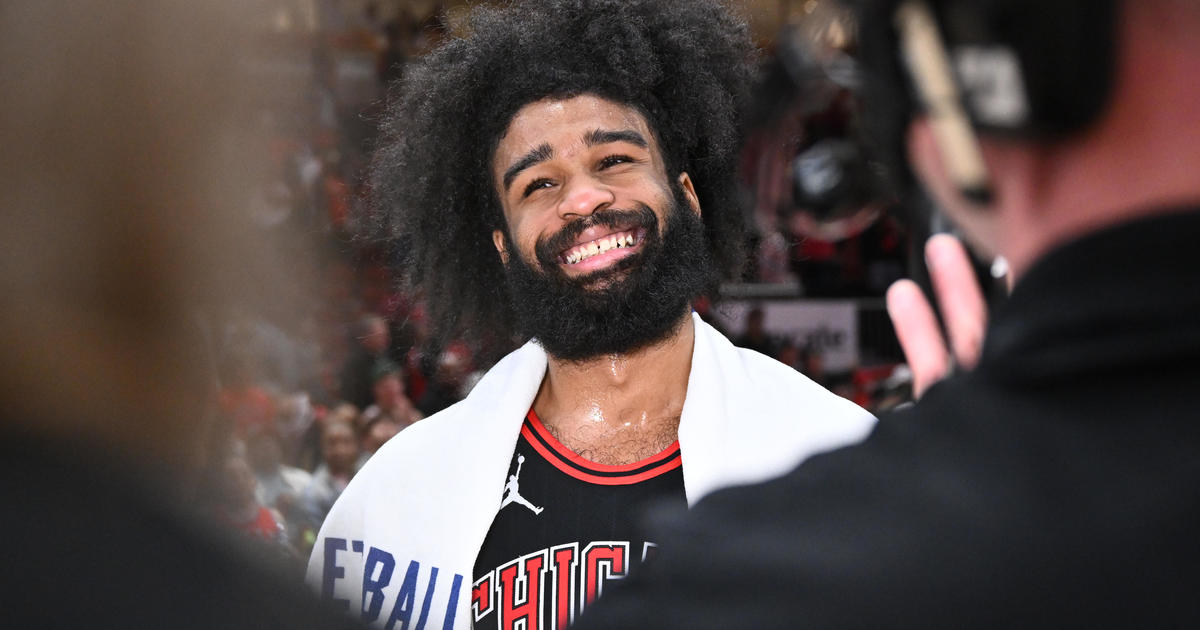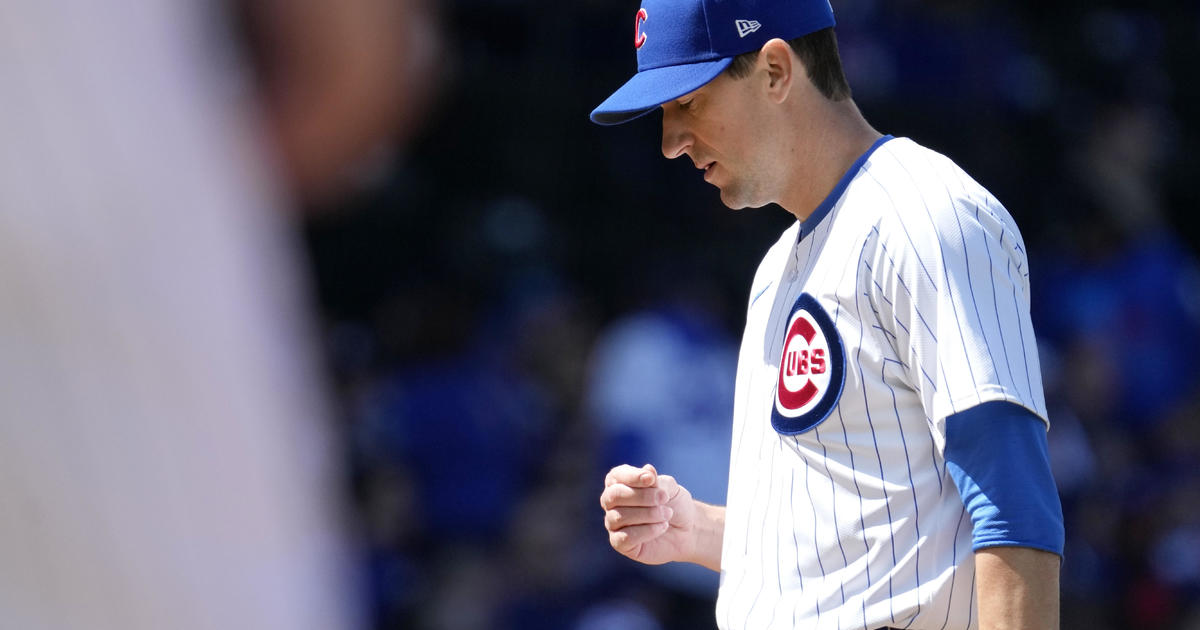Baffoe: All-Star Game In-Game Interviews Were Uncomfortable
By Tim Baffoe--
(CBS) WARNING: Incoming old man yelling.
I hated the in-game interviews that Fox did during the MLB All-Star Game on Tuesday.
Trying something new and innovative I can appreciate, and points go to the broadcast for experimenting during the exhibition game. My hope is the scientific method reached a conclusion for them that talking to players during the actual game is bad.
It began when Colorado Rockies outfielder Charlie Blackmon was getting ready to face Red Sox ace Chris Sale and had a microphone stuck in his face with the asinine question of what his approach was going to be stepping into the box against one of baseball's most dominant hurlers.
The brief interview had almost the best possible outcome, with an obviously bothered Blackmon giving an intentionally stupid answer to a stupid questment (I'm workshopping a term for reporter "questions" that are actually statements like "talk about …" and "take us through …"). The absolute best response would have been Blackmon asking why he had to partake in a conversation when he was supposed to be focusing on how to not be made to look foolish by a Sale slider on national TV.
The following inning, the cool guy who graduated high school but keeps coming back, Alex Rodriguez, was interviewing members of the National League infield on the actual infield. It was awkward as hell, provided nothing of substance and certainly didn't work toward baseball's mission of improved pace of play. A-Rod has been interesting and honest when doing studio work, and I found him to be part of an interesting mix during last year's playoffs. Trotting him onto the field in a suit to josh with players in uniform who should be playing catch was trying too hard. I wasn't alone in feeling the pain of players who did their best to pretend this was cool.
The TV booth interviewing George Springer of the Houston Astros and Bryce Harper of the Washington Nationals while they were respectively in the outfield and while actual pitches were being thrown wasn't as bad as physically putting a reporter next to the players. It was cool that Springer, someone who has dealt with a stutter his whole life, was so willing to put himself out there like that and be a positive example for kids with speech impediments.
Both he and Harper seemed to attempt to be engaging, even though there's hardly a chance any player on either team was leaping to be interviewed while playing. Harper's sense of humor flashed more than once, and he turned the interview on Buck at least by asking the Fox lead NFL play-by-play man about Cowboys quarterback Dak Prescott this upcoming football season -- again, while anticipating a ball coming Harper's way at any moment -- a slight nod to the absurdity of what he found himself involved in.
It was hard to get past the irony of the following question by Buck (whose questions were at least better than his on-field colleagues): "Does it take any of the fun out of this or intensity out of this now that home-field advantage in the World Series isn't in the line?"
That was asked to a player whose focus in that moment is supposed to be intense. While it was all different and had this prick of anxiety that Springer or Harper would have to suddenly break on a liner mid-question, it continued the strong batting average of on-field/court/ice interviews doing next to nothing to change the game experience for me.
I get that this game doesn't count, and I understand that All-Star Games in any sport are a time to let the figurative hair down and that besides the in-game interviews with the managers (which are usually somewhere between annoying and bad) this stuff wouldn't be done in a real game, but are we asking players to try their best or not? The coolest part about this All-Star Game was players really trying in a game that no longer has idiotic tangible significance of years past.
Interrupting at-bat prep or having a player answer questions while trying to read a pitch to ball off the bat isn't helping them focus. It's better suited for the celebrity softball game. And the content of the interviews largely stinks regardless and is only made interesting when players inject anarchy that belittles the job of the questioners. This goes for sideline interviews elsewhere, too, which hold only NASCAR crash value -- they're intriguing when Gregg Popovich or some ticked off NFL coach jogging to the locker room at halftime goes meta and destroys the faux sanctity of being asked painfully remedial stuff like "What's your team gotta do to blah blah blah?"
If the announcers in the booth or on-field reporters were going to really press players and managers as columnists would at a postgame podium, then maybe my interest gets piqued. But it's not Buck's job to question a coach on a decision while the game is still going on. A-Rod can't be expected to ask Nolan Arenado to break down third-base footwork while actually playing third base as could be done in a studio or during warmups instead. It all just has the feel of doing too much and asking too much of players sacrificing days off for this. Mic'ing up participants without interviews -- allowing them to lose the consciousness of the mic and having natural conversations with teammates and opponents and spontaneous emotions -- should be sufficient.
A cool, quirky moment occurred Tuesday when Nelson Cruz of the Seattle Mariners had Yadier Molina of the St. Louis Cardinals, who was playing catcher, take a picture of Cruz and home plate umpire Joe West as Cruz stepped to the plate for an at-bat. Not only was it funny in its irreverence and looseness and putting the villainized West in a harmlessly uncomfortable spot, but it was fine because it was Cruz choosing to initiate it. He was controlling the situation and solely impacting his own approach to the at-bat. An in-game interview isn't that.
A lot of baseball's romanticism is overblown, but it's a game that lends itself to acceptable periods of silence. We don't need our ears perpetually full of more than the drone of the crowd and the cracks and buzzes that the field mics pick up between the play-by-play and color commentary. Great TV baseball broadcasts -- like the ones in Chicago that we're spoiled with by Len Kasper and Jim Deshaies for the Cubs and Jason Benetti and Steve Stone for the White Sox -- get that.
Credit to Fox for trying something different, but I can't get past empathy for the players and coaches who don't want this. I'm aware it sounds curmudgeonly. Still, keep the media off my actual lawn during games.
Tim Baffoe is a columnist for CBSChicago.com. Follow Tim on Twitter @TimBaffoe. The views expressed on this page are those of the author, not CBS Local Chicago or our affiliated television and radio stations.



